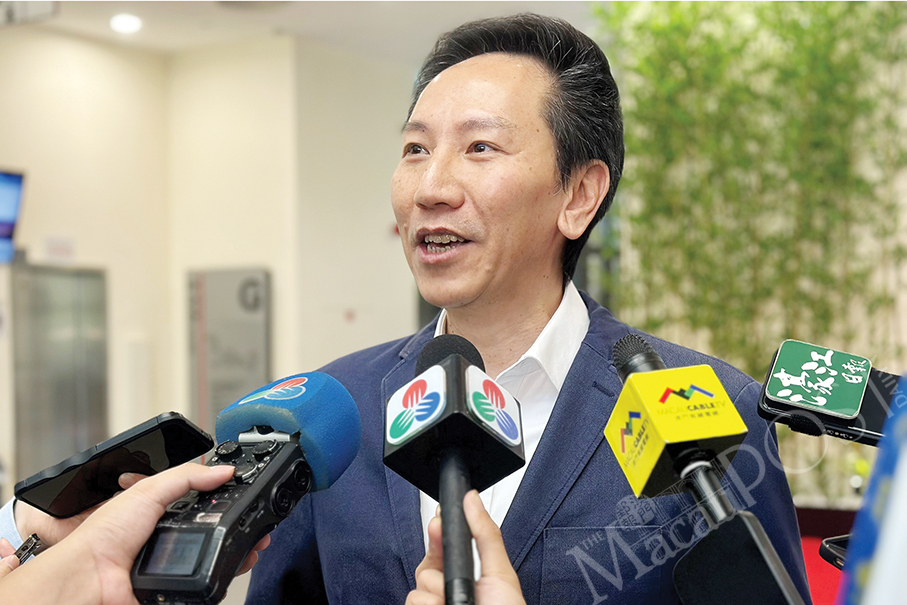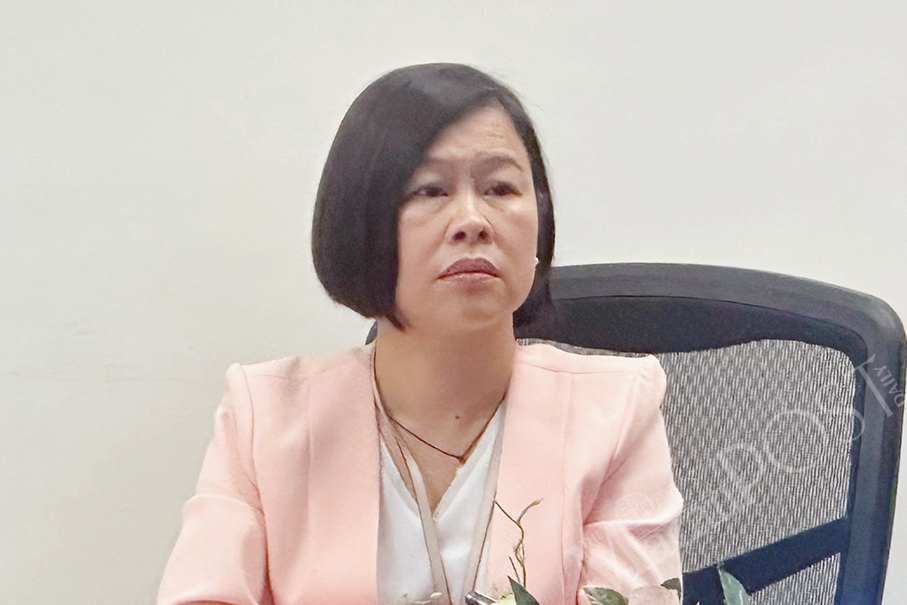Prof. Davis Fong Ka Chio, who heads the Institute for the Study of Commercial Gaming (ISCG) at the University of Macau (UM), told reporters yesterday he expected Macau’s economic recovery this year to exceed expectations, with the mass-market gaming tables set to return to their monthly takings of pre-pandemic 2019 from October, predicting gross gaming revenue of about 180 to 190 billion patacas this year and over 200 billion patacas next year.
Macau’s gross gaming revenue in the first seven months of this year grew by 263.0 percent year-on-year to 96.79 billion patacas, according to official statistics.
Local casinos’ GGR in 2019 amounted to 292.4 billion patacas. Macau confirmed its first COVID-19 case in January 2020. Local GGR reached a record 360.7 billion patacas back in 2013.
Fong was quick to add that the government’s budget deficit was expected to remain next year. He said: “Due to the combined effect of the increase in government spending on large-scale infrastructure and public housing projects in the near future, coupled with external factors, including high-interest rates, inflation and global economic problems, it is expected that next year’s budget will still be in deficit.”
“Macau is dependent on microeconomics constantly changing dynamically due to external competition,” Fong said, adding that tourists in Macau have been spending less money “in the era of high interest rates”. He also said that the full recovery of the global economy had yet to get off the ground.
In preparation for the expected increase in visitor arrivals during the mainland’s eight-day National Day/Mid-Autumn Festival Golden Week holiday from September 29 to October 6, Fong urged the government to draft a traffic plan in advance in order to balance the local tourism carrying capacity and residents’ mobility needs, while also stepping up efforts to promote non-gaming attractions, develop “tourism+” integration, and deal with residents’ psychological response to the growing number of tourists.
Meanwhile, Associate Prof. Agnes Lam Iok Fong, who heads the Centre for Macau Studies (CMS) at UM, told the media that the three-year COVID-19 pandemic had caused economic adjustments and negatively impacted household finances and, therefore, the government should pay close attention to the mental health of the public.
In response to the increase in tourists in Macau and the city’s lagging infrastructure, Lam also urged the government to keep up with the needs of civil society.
Commenting on the government’s “1+4” strategy which aims to ensure the local economy’s appropriately diversified development by promoting four main industries – big health, modern finance, high-tech, and conventions and exhibitions, including culture and sport, Lam said that the development of the new industries was beneficial to both local residents and the city’s economic development, hoping the government could clarify the balance between “1” and “4”, while promoting a “smooth” economic transition.
Both Fong and Lam made the remarks on the sidelines of yesterday’s on-campus seminar on the government’s policy address for next year. During the seminar, experts and scholars made suggestions for the government’s policies in 2024.
Chief Executive Ho Iat Seng is slated to deliver his 2024 Policy Address and present his government’s budget bill for next year during a special plenary session of the Legislative Assembly (AL) in October.
In Macau, the calendar and fiscal years are identical.

Prof. Davis Fong Ka Chio, who heads the Institute for the Study of Commercial Gaming at the University of Macau (UM), talks to reporters on the sidelines of yesterday’s seminar on the government’s policy guidelines for 2024, on the UM campus in Hengqin.

Associate Prof. Agnes Lam Iok Fong, who heads the Centre for Macau Studies (CMS) at UM, looks on during yesterday’s seminar.
– Photos: Yuki Lei








